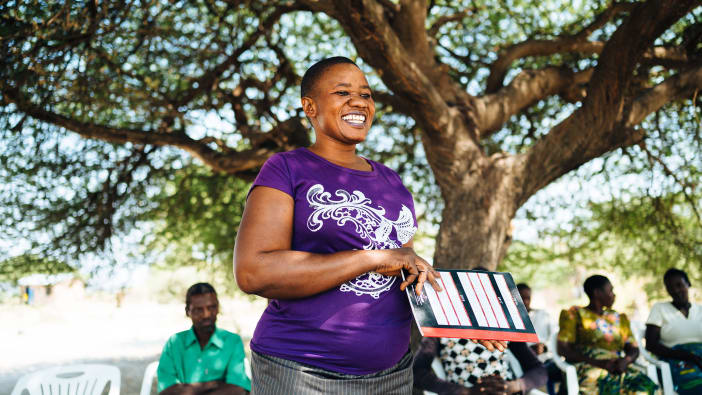Amran is a mother of eight from the Horn of Africa. Two years ago, her son embarked on a journey to Europe, trying to find a better life. But he fell prey to traffickers. Amran tells her story in her own words.
Sadiiq is my eldest son. He is 17 years old. He was always a good and kind-hearted boy. He used to be clever at school. He was my heart.
When I heard that he was in Addis Ababa, I was shocked and worried. I knew he didn’t have money to pay for food. I made every effort for his return but I didn’t succeed.
Seven days later, he contacted me from near the border between Ethiopia and Sudan. ‘Dear mother, I emigrated to Europe to find a better life for you and the rest of the family,’ he said. ‘Don’t worry and pray to keep me safe.’ I asked, ‘Who gave you the money to travel?’ and he replied, ‘My friend.’
I tried to convince him to come back home. But he continued his travels.
I met a lot of people whose children have emigrated. Finally I realised that smugglers take young people across borders without payment and later force them to pay all expenses and a ransom. I became anxious, lost sleep and was afraid for his life. I didn’t have one dollar to save him. His father died seven years ago. There are no assets, except a small yard next to my house. Most of the youths migrating from my country have been from poorer families.
Then, I received a phone call from a stranger asking me to speak with my son. The stranger told me to pay him US$4,000 in smuggling fees: otherwise, he said, ‘I shall cut his legs then arms until he dies.’ I replied, ‘I will look for the money. Give me some time, please.’ He then passed the phone back to my son, who started crying and told me that he had been beaten. Before I could question him further, the call was ended abruptly.
To get the ransom money, I informed my family, relatives abroad, friends and members of the self-help group I am part of, and pleaded for their help.
Fortunately, they collected and granted me part of the money. To raise the remaining sum, I sold my land. The smugglers freed my son, who had suffered several injuries, and he made his way to Tripoli. I was now forced to raise more money to fund his costs to cross the Mediterranean Sea and get to Europe. I am still paying back the money.
Finally, he arrived in Italy but was still not happy. He called to tell me, ‘It is different from what I expected; there is no place like home. I have caused you stress and miss you, Mum, and I can’t send you even one dollar. I’m sorry, Mum.’
Amran’s son remains in Italy where he is awaiting the outcome of an asylum application. Illegal migration puts people at high risk of traffickers.









